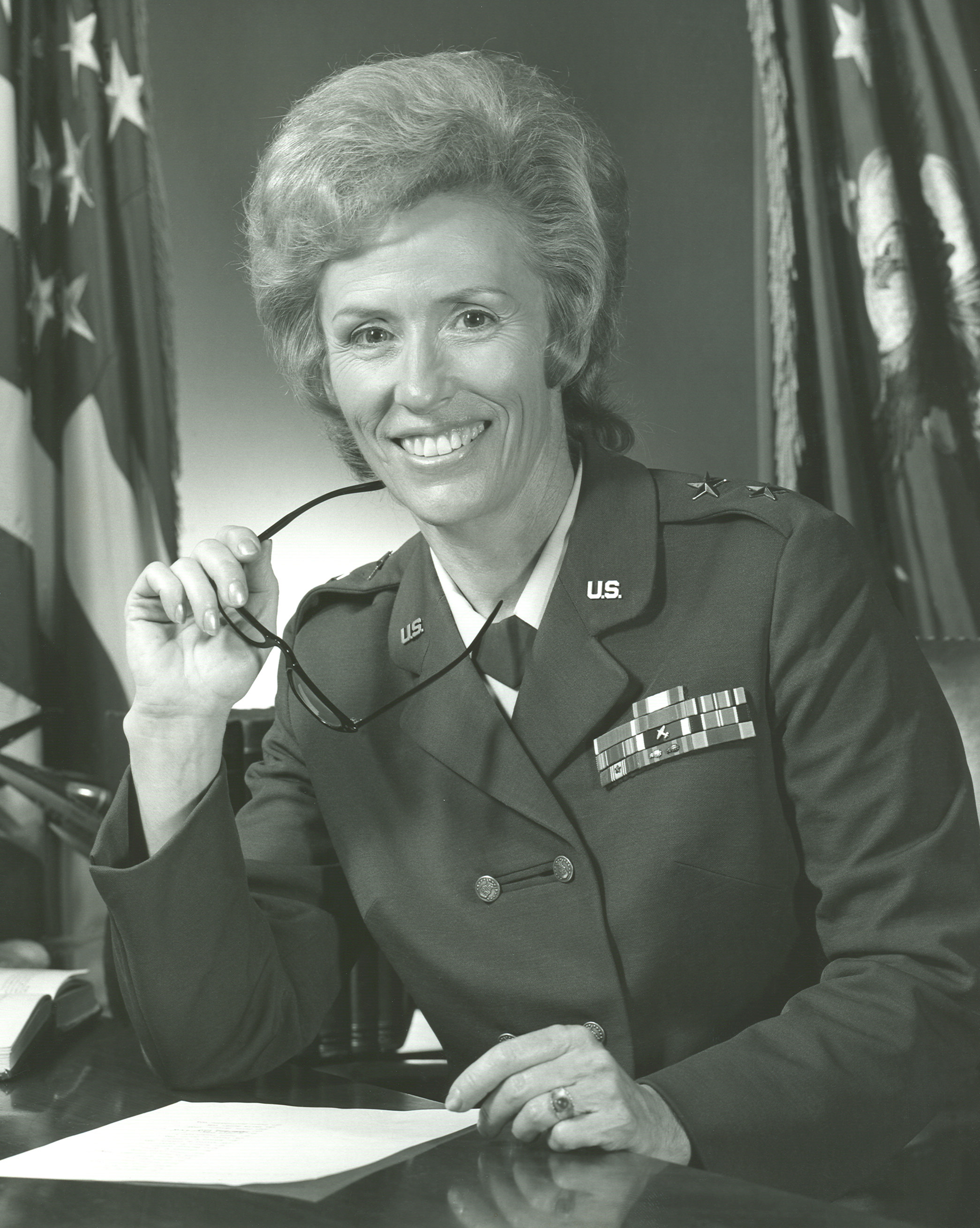 Maj. Gen. Jeanne M. Holm began her military service as a “barrier-breaker.” Throughout her career, she continued to overcome obstacles both for herself and, more importantly, for other women. One of the first women to enlist in the military during WWII after Congress established the Women’s Army Auxiliary Corps, she started out as a truck driver in the Army in 1942. After completing Officer Candidate School, she received a commission in January 1943. During the war, she commanded a basic training company and later a training regiment at Fort Oglethorpe, Georgia. Following the war, she commanded the 106th WAC [Women’s Army Corps] Hospital Company, leaving active duty in 1946.
Maj. Gen. Jeanne M. Holm began her military service as a “barrier-breaker.” Throughout her career, she continued to overcome obstacles both for herself and, more importantly, for other women. One of the first women to enlist in the military during WWII after Congress established the Women’s Army Auxiliary Corps, she started out as a truck driver in the Army in 1942. After completing Officer Candidate School, she received a commission in January 1943. During the war, she commanded a basic training company and later a training regiment at Fort Oglethorpe, Georgia. Following the war, she commanded the 106th WAC [Women’s Army Corps] Hospital Company, leaving active duty in 1946.
Recalled to active service during the Berlin Crisis, she transferred to the Air Force in 1949, serving at Erding Air Depot, Germany, where she was a planning officer during the Berlin Airlift and the early period of the Korean War. After her return from overseas in 1952, she became the first woman to attend the Air Command and Staff School at Maxwell AFB, Alabama. Following assignments at Headquarters, U.S. Air Force and at NATO’s Allied Air Forces Southern Europe, she became the director of Women in the Air Force in November 1965, overseeing policy affecting the service’s military women. During her time there, she exerted her influence and authority to expand the numbers of women in the service and create more job and assignment opportunities for women. Breaking yet another barrier, in February 1968, she and Col. Helen O’Day became the first USAF women to attain the permanent rank of colonel under a new law that removed restrictions on women reaching higher ranks. This led to two other major milestones. On July 16, 1971, she became the first female general officer in the Air Force, and on June 1, 1973, she became the first woman promoted to the rank of major general.
 Continuing her commitment to military women following her retirement from active duty in 1975, General Holm served as a Special Assistant on Women for President Gerald Ford and as a policy consultant for President Jimmy Carter. Recognizing that the progress of women in the military and in government was an evolving process, she wrote, Women in the Military, An Unfinished Revolution.
Continuing her commitment to military women following her retirement from active duty in 1975, General Holm served as a Special Assistant on Women for President Gerald Ford and as a policy consultant for President Jimmy Carter. Recognizing that the progress of women in the military and in government was an evolving process, she wrote, Women in the Military, An Unfinished Revolution.
